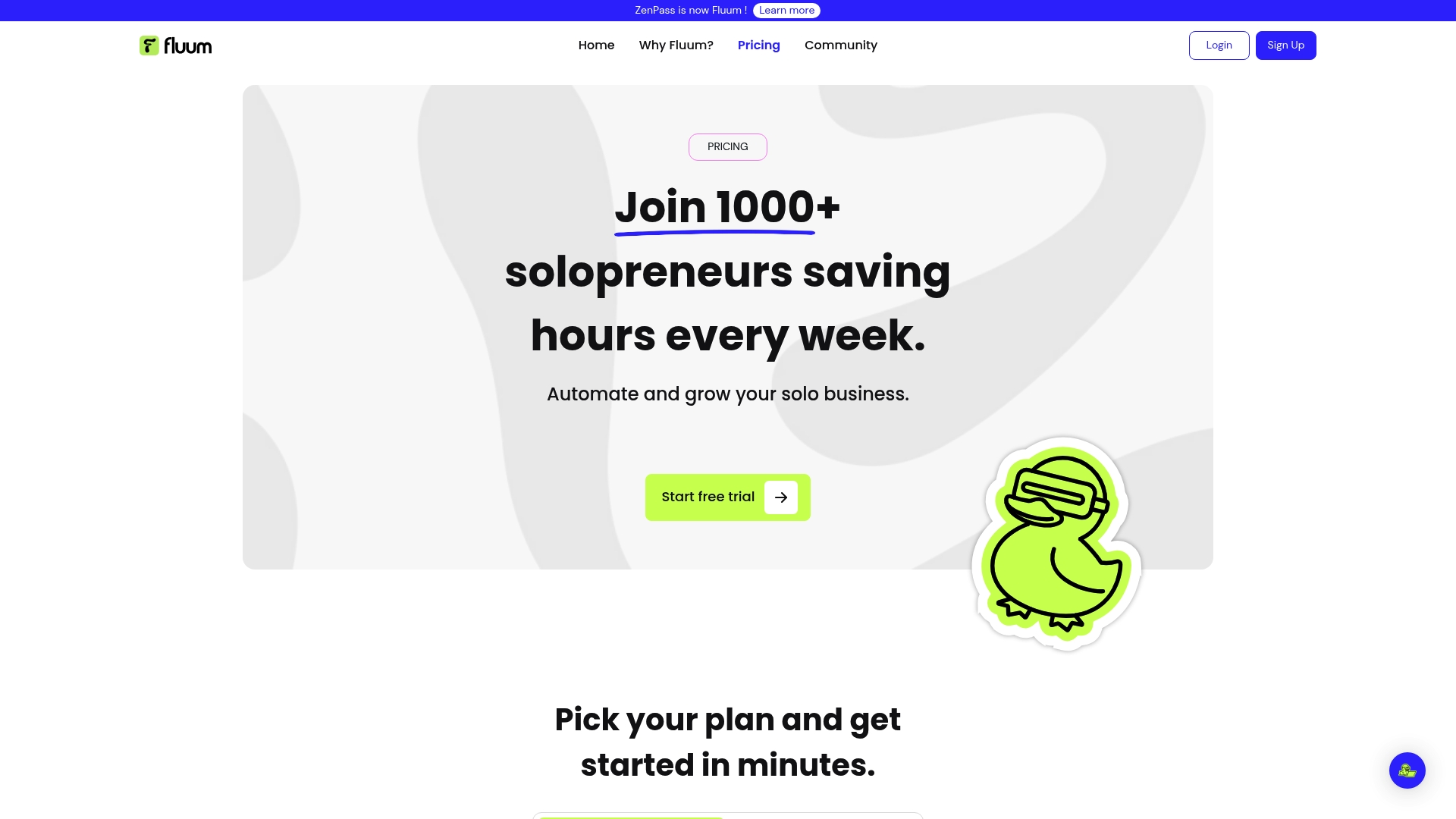
Keeping your clients coming back is the secret weapon of every thriving business. Most people believe bringing in new customers is the only way to grow, but that is just part of the story. A tiny 5 percent boost in customer retention can drive profits up by an incredible 75 percent, showing that building stronger relationships with current clients often beats chasing after new ones.
Table of Contents
- What Are Client Retention Strategies And Why Are They Important?
- The Benefits Of Strong Client Retention For Service Providers
- Key Components Of Effective Client Retention Strategies
- How Client Retention Strategies Foster Long-Term Relationships
- Real-World Examples Of Successful Client Retention Practices
Quick Summary
| Takeaway | Explanation |
|---|---|
| Client retention builds long-term relationships. | Effective strategies transform one-time customers into loyal clients committed to your service. |
| Personalization enhances client engagement. | Tailoring communication and interactions fosters a stronger connection and meets individual client needs. |
| Proactive problem resolution prevents issues. | Addressing potential challenges before they escalate creates trust and satisfaction among clients. |
| Returning clients contribute to profitability. | Striving to retain clients incurs lower costs and leads to higher spending compared to acquiring new ones. |
| Consistent communication reinforces trust. | Regular updates and check-ins establish an environment where clients feel valued and informed. |
What Are Client Retention Strategies and Why Are They Important?
Client retention strategies are systematic approaches designed to keep existing customers engaged, satisfied, and committed to your business over an extended period. These strategic methods focus on transforming one-time transactions into long-term relationships that generate consistent revenue and sustainable business growth.
Understanding the Fundamental Value of Client Retention
Retention strategies are not just about preventing customer loss but about creating meaningful connections that make clients want to continue working with you. Learn more about retention approaches reveals that successful businesses invest significantly more in maintaining existing relationships than acquiring new ones.
According to research from Harvard Business School Online, a mere 5% increase in customer retention can potentially boost profitability by 75%.
 This statistic underscores the critical economic importance of developing robust retention strategies.
This statistic underscores the critical economic importance of developing robust retention strategies.
Key Elements of Effective Client Retention
Successful client retention hinges on several fundamental principles:
- Consistent Quality Delivery: Maintaining high standards of service or product performance
- Personalized Communication: Tailoring interactions to individual client needs and preferences
- Proactive Problem Resolution: Addressing potential issues before they become significant concerns
For solopreneurs and freelancers, retention strategies transform transactional relationships into partnerships. By demonstrating reliability, understanding client goals, and continuously adding value, professionals can build a loyal customer base that provides stable income and potential referrals.
Ultimately, client retention is about creating an experience so positive and seamless that customers naturally choose to continue their relationship with you, seeing your service as an indispensable solution to their ongoing needs.
The Benefits of Strong Client Retention for Service Providers
Client retention represents far more than a simple business metric. For solopreneurs and independent service providers, robust retention strategies translate into sustainable growth, financial stability, and professional reputation enhancement.
Financial Sustainability Through Repeat Business
Strong client retention directly impacts a service provider’s economic ecosystem. Instead of constantly pursuing new customers, professionals can build a reliable income stream from existing relationships. Explore loyalty program strategies reveal that returning clients often spend 67% more than new customers, making them significantly more valuable.
According to research from the International Journal of Health Policy and Management, consistent client relationships contribute to higher service quality, improved professional reputation, and increased client satisfaction across various service sectors.
Reputation and Network Expansion Benefits
Retained clients become more than just revenue sources. They transform into powerful advocates who:
- Generate referrals through personal recommendations
- Provide testimonials that attract new potential clients
- Offer insights for service improvement
- Create a stable professional network
By prioritizing client retention, service providers build a reputation for reliability, expertise, and exceptional customer experience. This reputation becomes a powerful marketing tool that organically attracts high-quality clients who value consistency and professionalism.
To help clarify the value of client retention, this table summarizes key statistics and research findings mentioned in the article.
| Statistic or Research Finding | Source / Context | Relevance to Client Retention |
|---|---|---|
| 5% boost in customer retention can drive profits up by 75% | Harvard Business School Online research | Demonstrates huge impact on profits |
| Returning clients spend 67% more than new customers | Loyalty program strategies research | Returning clients provide higher value |
| Consistent client relationships improve service quality, reputation, and satisfaction | International Journal of Health Policy and Management research | Links retention to broader benefits |
| Strategic retention approaches reduce overall marketing costs | Research on targeted promotional frameworks | Shows cost-effectiveness |
| Personalization, proactive communication, and understanding client objectives build loyalty | Customer loyalty in digital environments research | Outlines factors for long-term success |
Ultimately, client retention is an investment in long-term professional success, creating a virtuous cycle where excellent service leads to loyal clients, who in turn become ambassadors for your business.
Key Components of Effective Client Retention Strategies
Effective client retention strategies require a holistic approach that combines intentional communication, personalized experiences, and strategic relationship management. For solopreneurs and independent service providers, understanding these core components transforms client interactions from transactional exchanges to meaningful professional partnerships.
Personalization and Targeted Communication
Personalization stands as the cornerstone of successful retention. By understanding individual client preferences, needs, and expectations, service providers can craft experiences that feel uniquely tailored. Explore client retention management tools that help professionals track and anticipate client requirements effectively.
According to research exploring user experience design principles, successful retention hinges on creating intuitive, responsive interactions that demonstrate genuine understanding of client goals and challenges.
Comprehensive Relationship Management
Retention strategies extend beyond singular interactions. Successful professionals develop comprehensive approaches that encompass multiple dimensions of client engagement:
- Consistent Communication: Regular check-ins and updates
- Performance Transparency: Clear reporting on progress and outcomes
- Proactive Problem Solving: Anticipating potential challenges
- Continuous Value Addition: Offering insights and recommendations
By treating each client relationship as a dynamic, evolving partnership, service providers can create environments of trust, reliability, and mutual growth. The goal is not merely to maintain current business but to position yourself as an indispensable resource that clients view as critical to their own success.
This table organizes core components and characteristics of effective client retention strategies discussed in the article for easy reference.
| Component/Characteristic | Description |
|---|---|
| Personalized Communication | Tailoring interactions and messaging to individual client needs and preferences |
| Consistent Quality Delivery | Maintaining high standards in services or products over time |
| Proactive Problem Resolution | Identifying and addressing issues before they become significant challenges |
| Regular Check-Ins/Updates | Maintaining engagement with clients through scheduled communications |
| Performance Transparency | Providing clients with clear reporting on progress and outcomes |
| Continuous Value Addition | Offering new insights, recommendations, and ongoing support to enhance the relationship |
| Strategic Relationship Management | Treating client relationships as evolving partnerships and investing in mutual growth |
Ultimately, effective client retention is about building sustainable relationships through consistent, high-quality interactions that demonstrate your commitment to client success.
How Client Retention Strategies Foster Long-Term Relationships
Long-term client relationships represent the pinnacle of professional success for solopreneurs and independent service providers. These relationships go beyond transactional interactions, transforming into strategic partnerships built on trust, consistent value, and mutual understanding.
Trust as the Foundation of Lasting Connections
Trust emerges as the critical element in developing enduring client relationships. Service providers who demonstrate reliability, transparency, and genuine commitment create environments where clients feel secure and valued. Explore loyalty programs for long-term coaching clients can provide insights into structured approaches for maintaining these crucial connections.
According to research on customer loyalty in digital environments, successful long-term relationships are built through consistent personalization, proactive communication, and demonstrating a deep understanding of client objectives.
Strategic Value Creation and Relationship Nurturing
Long-term relationships are sustained through continuous value generation. Professionals who excel in client retention understand that each interaction is an opportunity to reinforce their value proposition:
- Predictive Problem Solving: Anticipating client challenges before they arise
- Continuous Learning: Adapting services to evolving client needs
- Transparent Communication: Providing regular, meaningful updates
- Personalized Experiences: Tailoring interactions to individual client contexts
By positioning themselves as strategic partners rather than service providers, professionals create relationships where clients view them as essential contributors to their success. This approach transforms traditional service delivery into a collaborative journey of mutual growth and achievement.

Ultimately, fostering long-term relationships requires a holistic approach that combines emotional intelligence, strategic thinking, and a genuine commitment to client success.
Real-World Examples of Successful Client Retention Practices
Transforming theoretical client retention strategies into practical applications requires understanding how successful professionals implement targeted approaches that create lasting client relationships. By examining proven methods, solopreneurs can develop robust strategies tailored to their unique service offerings.
Personalized Follow-Up and Engagement Systems
Successful retention often begins with systematic, personalized communication strategies. Learn about loyalty programs for fitness clients to understand how targeted engagement can transform client interactions. Professionals who implement structured follow-up systems demonstrate commitment and maintain continuous connections beyond initial service delivery.
According to research exploring targeted promotional frameworks, strategic retention approaches can significantly improve long-term customer relationships while reducing overall marketing costs.
Strategic Retention Tactics Across Different Service Sectors
Professionals across various domains have developed innovative retention strategies that share common fundamental principles:
- Wellness Coaches: Creating personalized progress tracking and milestone celebration programs
- Consulting Professionals: Offering complimentary quarterly strategy review sessions
- Digital Service Providers: Implementing automated check-in sequences with tailored recommendations
- Creative Professionals: Developing annual retrospective meetings to showcase cumulative achievements
These approaches demonstrate that successful retention transcends industry boundaries. The core principle remains consistent: making clients feel valued, understood, and continuously supported throughout their journey.
Ultimately, effective client retention is about transforming transactional relationships into meaningful, collaborative partnerships where clients perceive genuine investment in their success.
Ready to Turn Client Retention Strategies Into Real Growth for Your Solo Business?
If you have ever felt overwhelmed by the challenge of keeping clients engaged and loyal, you are not alone. This article highlights how essential retention is to your success, yet many solopreneurs struggle with fragmented tools and time-consuming manual follow-ups. Unlocking the full power of concepts like personalized communication, proactive relationship management, and loyalty programs is difficult without a streamlined system built just for you.

Imagine having every tool you need all in one place, from automated follow-ups to integrated booking and payments. Fluum.ai turns theory into action with an intuitive AI-powered platform designed for solo service providers. Take control of your client relationships and build sustainable growth—no coding required. Want to boost your client retention and run your business more efficiently? Discover flexible plans and step-by-step guidance on our pricing page and see how easy building loyalty can be. Take the first step toward stronger client connections right now.
Frequently Asked Questions
What are client retention strategies?
Client retention strategies are systematic approaches aimed at keeping existing customers engaged and satisfied, fostering long-term relationships that contribute to sustainable business growth.
Why is client retention important for businesses?
Client retention is crucial because retaining existing clients often costs less than acquiring new ones, and a small increase in retention rates can significantly boost profitability and overall financial performance.
How can businesses implement effective client retention strategies?
Effective client retention strategies can be implemented through consistent quality delivery, personalized communication, proactive problem resolution, and continuous value addition tailored to client needs.
What role does trust play in client retention?
Trust is a fundamental element in client retention, as it fosters reliable and transparent relationships between service providers and clients, leading to lasting connections and mutual growth.



